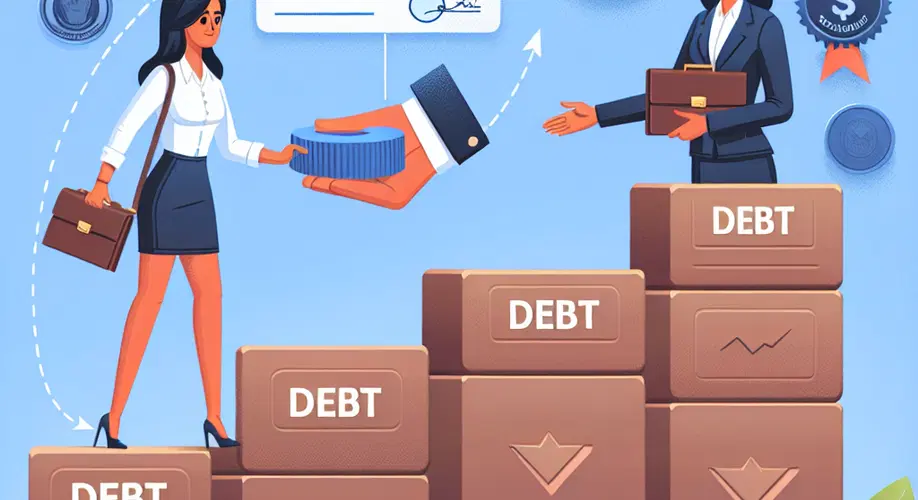Are you looking for DEBT RELIEF answers? Call toll-free 866-250-6599

Understanding Accredited Debt Relief Programs
Accredited debt relief programs are designed to provide individuals with a structured approach to managing overwhelming debt. These programs, typically backed by official accreditation bodies, aim to ensure that consumers receive legitimate and ethical financial assistance. By working with accredited agencies, individuals can explore various debt solutions tailored to their unique financial circumstances. It is essential, however, for consumers to conduct thorough research and choose programs with a proven track record of success in facilitating debt relief.
One of the critical aspects of accredited debt relief programs is credit counselling. Credit counsellors work closely with debtors to offer personalized advice, create a manageable budget, and negotiate with creditors for reduced payments or interest rates. This education-first strategy not only helps in alleviating immediate financial pressure but also empowers individuals with the knowledge to maintain healthy financial practices long-term. Such programs often serve as viable bankruptcy alternatives, helping individuals avoid the severe ramifications of formal bankruptcy declarations.
When examining accredited debt relief programs, it's vital to consider their advantages and limitations. Relief programs can provide a much-needed respite from the stress of debilitating debts, yet consumers must be wary of quick-fix promises and the potential long-term effects on credit scores. In evaluating debt consolidation options, the emphasis should be on sustainable debt management and the potential for future financial stability. Transparency, customer support, and a clear pathway out of debt are crucial markers of a reputable program.
Pros and Cons of Various Debt Settlement Approaches
Navigating the landscape of debt settlement can be akin to finding a path through a financial labyrinth. Each approach to debt relief, whether it's credit counseling, debt consolidation, or other forms of negotiation, has its unique set of advantages and drawbacks. For instance, debt consolidation may simplify multiple debts into one manageable payment, but it also could extend the repayment period and the total amount paid due to interest. Understanding these nuances is key to choosing a strategy that aligns with one's financial goals and leads towards a debt-free lifestyle.
Debt negotiation services from reputable debt companies can present an attractive option for those drowning in financial obligations. These services work towards reducing the outstanding debt by negotiating with creditors, potentially leading to lower payments and quicker debt resolution. However, it's important to remember that this may impact the debtor's credit score and not all negotiation efforts succeed. Selecting an accredited program with a proven track record is essential for ensuring the best outcome in the debt relief process.
Bankruptcy should always be viewed as a last resort, yet for some, it's the most viable path towards regaining monetary control. Alternative programs to bankruptcy, including credit counseling, often aim to provide individuals with the tools and knowledge necessary to manage debt more effectively without resorting to legal proceedings. While these alternatives can offer a lifeline, they require commitment and careful planning to ensure long-term financial health and avoid the pitfalls that led to the debt in the first place.
Another approach to consider is credit counseling, which offers guidance and resources to help individuals understand their financial situation and create a plan to pay off their debts. These programs often work with accredited non-profit organizations that can provide free or low-cost services. However, not all counseling services may directly lead to debt relief, and it's crucial to have clear expectations and vetting any potential counselors thoroughly for credibility and effectiveness.
For those who wish to avoid the long-term implications of bankruptcy, seeking viable alternatives is essential. Programs like debt management plans can provide a structured way to address unmanageable debt while preserving one's credit rating. Both diligence in sticking to the plan and the credibility of the involved debt relief agency play pivotal roles in determining the success of such programs. It's important to thoroughly understand each option and its potential impact before committing to a specific debt relief strategy.
Adopting a proactive approach towards tackling debt is paramount in achieving a stable financial future. Working with accredited programs that offer debt settlement approaches should be done with caution and knowledge of their terms. For many, the promise of reducing their burden quickly is alluring, but making informed decisions based on thorough evaluation of the pros and cons is the first step in ensuring that the path chosen leads to a sustainable, debt-free life.
Credit Counseling and Bankruptcy Alternatives: A Comparative Analysis
Accredited debt relief programs offer a beacon of hope for individuals drowning in financial obligations. Among the various strategies, credit counseling emerges as a pivotal first step. This approach involves trained professionals assessing your financial situation and devising a plan of action. Unlike debt consolidation which merges debts into a single loan, credit counseling educates and empowers individuals to manage their debt and finances responsibly.
Bankruptcy is often viewed as a last resort due to its long-lasting impact on credit health. However, there are alternatives that can mitigate financial distress without the severe repercussions of declaring bankruptcy. Debt negotiation is one such avenue, where experts negotiate with creditors to lower the owed amount, enabling a path to debt-free living. These options are critical to explore alongside credit counseling, allowing for a comprehensive review of possible solutions.
Evaluating accredited financial services is essential when considering debt relief options. The credibility and success rates of these programs play a crucial role in their effectiveness. It is imperative to look for programs with a track record of helping consumers achieve financial stability. Moreover, understanding potential fees, service offerings, and consumer reviews are part of making an informed decision—ensuring that the chosen path aligns with personal financial goals.









